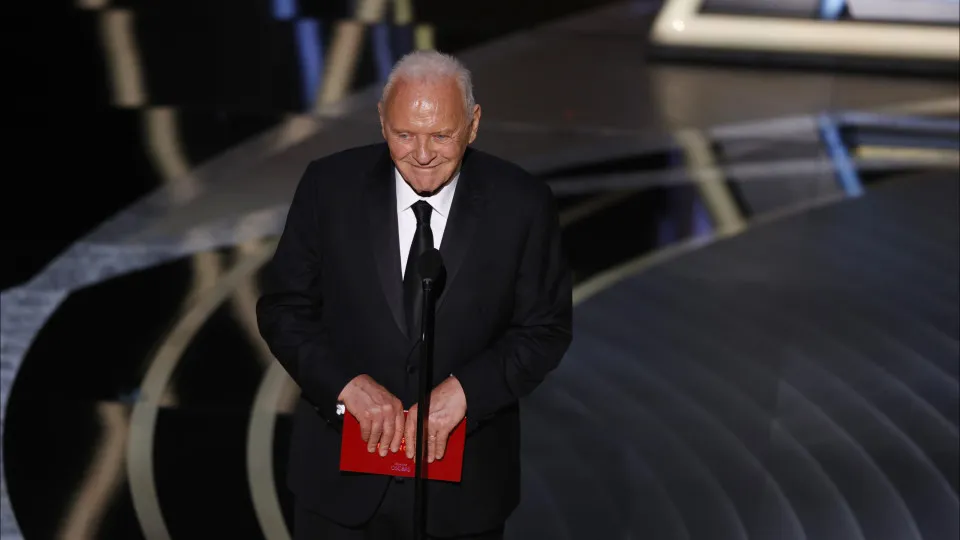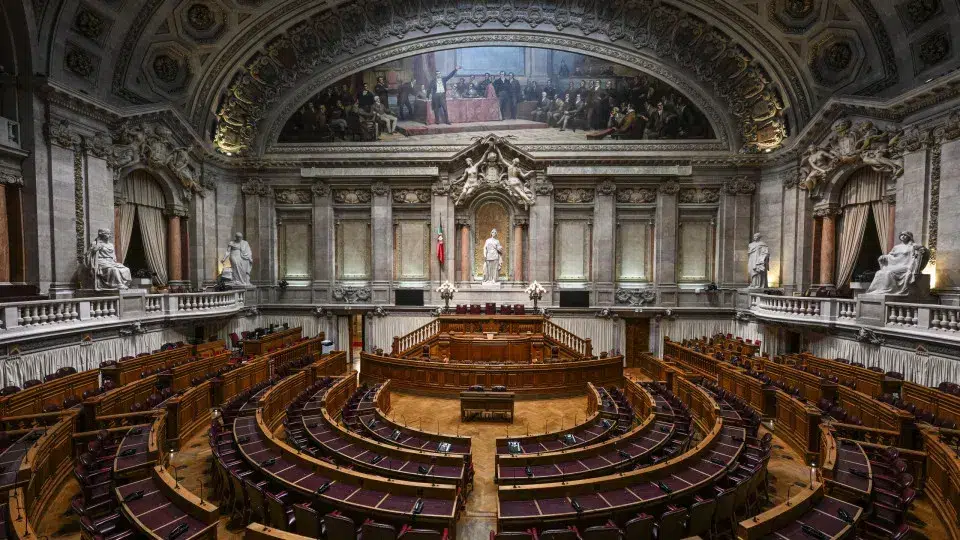
Launched by Simon & Schuster at the end of October, the memoir “We did OK, kid” has been translated into Portuguese by Vasco Gato and will be published by Lua de Papel next Tuesday.
This introspective narrative, written by the actor from “The Silence of the Lambs,” reflects on the experiences that have shaped his personal and artistic identity.
The book gathers episodes spanning his life, from his childhood in Port Talbot—the industrial town where he was born in 1937—to his Hollywood success, including memories of his relationship with his father, his school years, his early years in British theatre, and the personal challenges he faced over time.
The title “We did OK, kid” is inspired by a photograph of the author as a child with his father, Richard Hopkins, and serves as a starting point for a reflection on legacy and a sense of achievement.
In the introduction, Anthony Hopkins recalls a morning in 1941 when they were at the beach, a friend of his father named Cliff offered him a cough drop—in those wartime years, sweets were rare—and he, “clumsy,” dropped it in the sand and burst into tears.
He was given a second candy, and his father bent down to comfort him, saying “enough tears,” and Cliff took the photograph, which illustrates the first page of the book.
“It is one of my oldest memories. I was three. Today, at eighty-seven, I occasionally look at that photo and feel compelled to say to the flustered boy: ‘We did OK, kid,'” writes the author.
Anthony Hopkins spent his childhood feeling “out of place,” in an environment of men who did not show vulnerability, with a father who was a baker and a mother who was a homemaker.
The actor confesses that, like other children, he felt “anxious and bewildered,” but that this “feeling of being lost” accompanied him throughout his many years of life.
At the age of 11, his parents enrolled him in a boarding school, hoping he would improve, as they were distraught by their awkward son who performed poorly academically, to whom a previous school teacher nicknamed “thickhead” and street kids called “elephant head.”
But it was during this school period, after years of defiantly opposing teachers “with fierce insolence,” that he was impacted by cinema, upon seeing the film “Hamlet” (1948) by Laurence Olivier, which led him to pursue an artistic career.
Over nearly 300 pages, the actor describes his academic and professional journey that led him from London’s Royal Academy of Dramatic Art (RADA) to international recognition, sharing stories of interactions with key figures in British theatre and cinema.
The narrative also references his collaboration with Laurence Olivier and his experience at the Royal National Theatre, which he considers crucial in consolidating his discipline and work method.
Moreover, “We did OK, kid” dedicates several chapters to his life beyond childhood, particularly the period of alcohol dependency and the recovery process he began in the 1970s, which the author describes as an inner rebirth.
Anthony Hopkins shares how he began drinking seriously in the 1960s and how this habit became almost routine, as it was the only way he felt normal.
On December 29, 1975, after spending a night driving without recollection and realizing he might have killed someone, he awoke to sobriety, which he has maintained for nearly half a century.
Hopkins also discusses family estrangement and the impact his personal choices, mostly driven by alcoholism, had on his private life.
Although the book contains occasional references to the filming of iconic movies—like “The Silence of the Lambs,” “The Remains of the Day,” or “The Father”—it offers a broader perspective on the passage of time, aging, and artistic creation.
The author also reflects on the meaning of art and spirituality, the nature of memory, and the value of everyday simplicity, particularly from the 2000s onwards, discussing his late relationship with time, solitude, and mortality.
It is during this period that he also began dedicating more time to painting and musical composition, earning his second Oscar for Best Actor (the first being for “The Silence of the Lambs”) for “The Father” (2021), which he dedicates to all those “who struggle to make peace with themselves.”
As the book concludes, the author returns to his school days, recalling how reading John Masefield’s poem “The West Wind,” which a teacher made him read aloud to the class, awakened “another life buried” within him. After class, the teacher gave him the book, calling it a “revelation.”
Since then, he has nurtured a passion for reading, poetry—”poems have a bad reputation, it seems, but I like them”—painting, and music, which “also played a significant role” in his life.
“The only advice I can offer is: listen to music. Any music. And read. Read anything. Books. Poems. Whatever,” writes Hopkins.
Thus, he chose to include in the book—not only an extensive collection of photographs (from his personal and artistic life)—but also a final chapter compiling a series of poems by some of his favorite authors, such as W.H. Auden, C.P. Cavafy, John Masefield, Gerard Manley Hopkins, Henry Wadsworth Longfellow, William Shakespeare, W.B. Yeats, T.S. Eliot, Ernest Dowson, Edward Thomas, Thomas Gray, and Christina Rossetti.
Anthony Hopkins now lives more focused on the spiritual and philosophical plane because, as he mentioned in a recent interview after receiving the Oscar, “life is short, art is a gift.”




